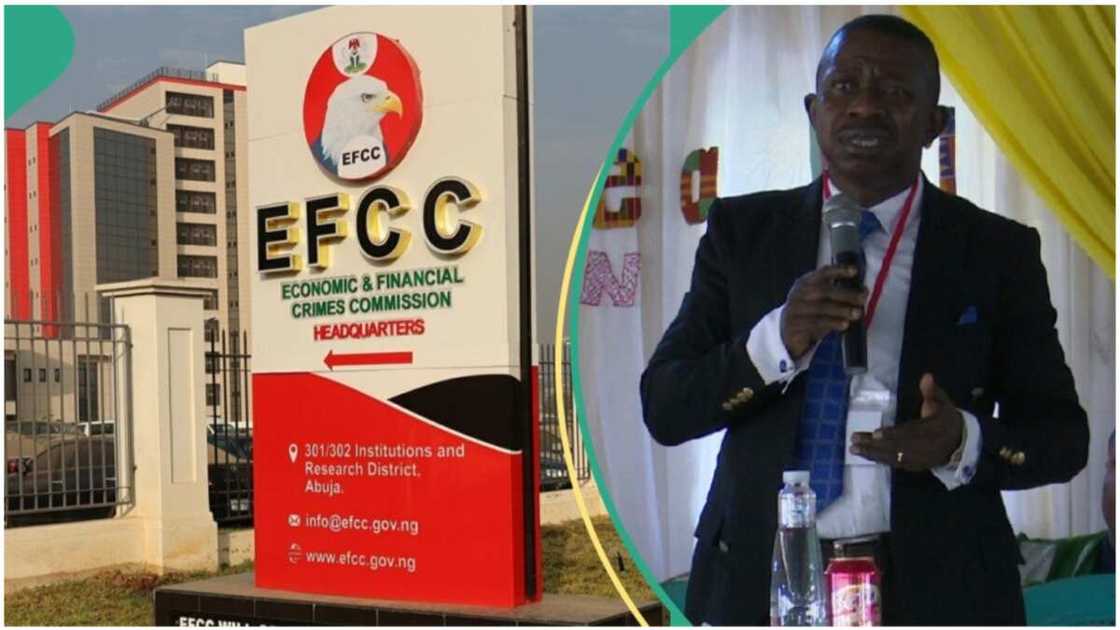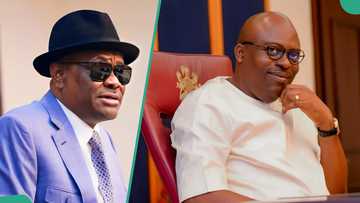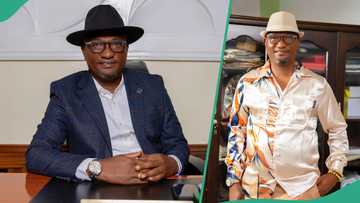Who Owns Forfeited Abuja 753 Duplexes? EFCC Finally Opens Up
- The EFCC has reacted to the criticism that it was concealing the identity of the owner of the Abuja estate with 753 duplexes
- Dele Oyewale, the spokesperson of the EFCC, said the company traced to the estate has denied its ownership, which prompted the commission to approach the court for the forfeiture
- Oyewale further disclosed that the EFCC is still investigating the property and dismissed the insinuation that the embattled former CBN governor, Godwin Emefiele, owned the property
Don't miss out! Join Legit.ng's Sports News channel on WhatsApp now!
The Economic and Financial Crimes Commission (EFCC) has found itself in a defensive position after facing criticism for not disclosing the identity of the owner of a massive Abuja estate that was recently forfeited to the federal government.
The estate, which spans 150,500 square meters and features 753 units of duplexes and other apartments, was forfeited through a court order obtained by the EFCC on Monday, December 2.

Source: Twitter
EFCC speaks about seized Abuja property
The EFCC's decision not to reveal the owner's identity has sparked speculation among Nigerians, with some accusing the agency of a cover-up. However, Dele Oyewale, the EFCC's spokesperson, has defended the agency's decision, stating that the investigation into the suspected criminality in acquiring the property is still ongoing. Oyewale explained that the company suspected of owning the estate denied ownership, prompting the EFCC to approach the court for a final forfeiture order.
Omowole Sowore, the publisher of Sahara Reporters, has been vocal in his criticism of the EFCC, alleging that the agency is deliberately concealing the owner's details. Sowore claims that the asset belongs to Godwin Emefiele, the embattled former governor of the Central Bank of Nigeria (CBN). However, Oyewale has described Sowore's allegation as "unacceptable and grossly uncharitable," stating that it is shocking that Sowore is not concerned about the systemic issues that allowed such a corrupt act to occur.
The EFCC has emphasized that the proceedings for the forfeiture of the estate were in line with Section 17 of the Advance Fee Fraud Act, which allows for civil proceedings against properties rather than individuals. The agency has also reassured Nigerians that investigations into the criminal elements behind the estate are still ongoing and that it remains committed to transparency and accountability.
Lawyer reacts to EFCC's comment
Titilope Anigowoshe, a legal practitioner who spoke on the development with Legit.ng. called for caution and objectivity on the matter. She added that the EFCC and other security agencies should thoroughly investigate the development. Her statement reads:
"It is very crucial to approach such matters with caution and objectivity. We must allow the relevant authorities, in this case, the EFCC and other security agencies, to thoroughly investigate these allegations and ensure that justice is served."
See the statement here:
EFCC asked to probe Ohanaeze Ndigbo
Legit.ng earlier reported that the EFCC had been asked to investigate the financial activities of the socio-cultural organization Ohanaeze Ndigbo.
The organisation's youth wing made the call on the EFCC in the name of financial transparency and accountability.
According to the Ohanaeze youth, the group's leadership has not been reporting the money donated to the organisation's account.
Proofreading by James, Ojo Adakole, journalist and copy editor at Legit.ng.
PAY ATTENTION: Сheck out news that is picked exactly for YOU ➡️ find the “Recommended for you” block on the home page and enjoy!
Source: Legit.ng




